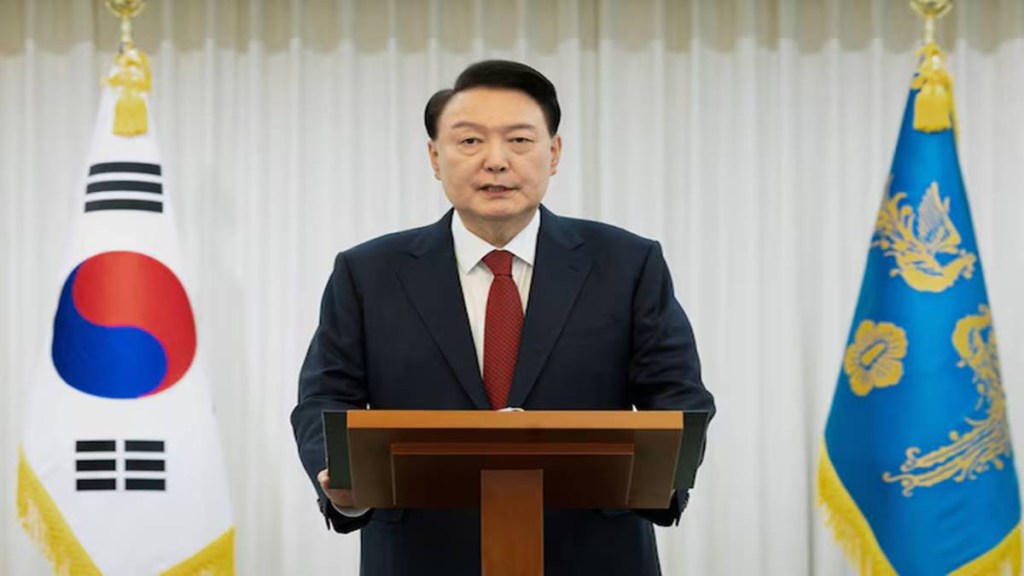South Korea witnessed a pivotal political development as its National Assembly voted decisively to impeach President Yoon Suk Yeol. The impeachment motion, passed with 204 votes in favour and 85 against, follows a controversial declaration of martial law earlier this month that sparked widespread protests and internal dissent within Yoon’s own conservative party.
The impeachment suspends Yoon from office pending a Constitutional Court review, with Prime Minister Han Duck-soo stepping in as interim president. This is the third time in South Korea’s democratic history that a sitting president has been impeached, marking a moment of reckoning for the nation.
The Martial Law Controversy
The motion to impeach stems from Yoon’s abrupt declaration of martial law on 3 December, ostensibly as a response to perceived security threats from North Korea. The six-hour imposition of military rule saw curfews enacted, troops mobilised, and communications monitored. The move triggered alarm across South Korea, with many perceiving it as reminiscent of the country’s authoritarian past.
The backlash was immediate. While the martial law order was rescinded within hours, its impact proved irreparable. A dozen members of Yoon’s conservative People Power Party joined the opposition in backing the impeachment, a rare show of bipartisan disapproval.
Critics argued that the declaration was an overreach of executive power, undermining democratic principles in one of Asia’s most vibrant democracies. Yoon’s defenders maintained that the action was necessary to protect national security, though this did little to quell the outrage.
Protests with a Cultural Twist
Public anger erupted into nationwide protests, with demonstrators gathering in major cities, including outside the National Assembly in Seoul. Protesters carried banners and placards while wielding K-pop light sticks, a staple of South Korea’s global cultural exports.
In a striking display of civic engagement intertwined with pop culture, BTS’s song Fire played during protest marches, providing an anthem for those demanding accountability. The combination of music, youthful energy, and political activism demonstrated the unique character of modern South Korean protests.
What Lies Ahead
The Constitutional Court now has up to 180 days to determine whether Yoon should be permanently removed from office. If the court upholds the impeachment, a presidential election must be held within 60 days, potentially reshaping the nation’s political future.
Yoon’s suspension marks a significant fall for a leader who campaigned on a platform of security and economic reform. While he has defended his actions as necessary to maintain stability, the impeachment underscores deep fractures within the political establishment and broader society.
Historical and Global Implications
The impeachment reflects both the resilience and the challenges of South Korea’s democracy. It highlights a demand for greater accountability and serves as a reminder of the public’s capacity to challenge perceived abuses of power.
Internationally, the impeachment raises questions about South Korea’s stability, particularly at a time of heightened tensions on the Korean Peninsula. Allies such as the United States will be closely monitoring developments, given the nation’s strategic importance in East Asia.
This moment also signals the increasing influence of younger South Koreans in shaping the country’s political landscape. Their ability to blend cultural expression with political advocacy, as seen in the protests, underscores a generational shift towards a more dynamic form of civic participation.
A Turning Point
South Korea now enters a period of uncertainty as the Constitutional Court deliberates Yoon’s fate. While the impeachment process follows legal and constitutional norms, it also reflects the broader struggle of a nation grappling with its democratic ideals.
For many, the events surrounding Yoon’s impeachment represent a reaffirmation of South Korea’s commitment to democracy. The energy of the protests, the cultural symbols they employed, and the determination of those involved signal a society unwilling to tolerate actions that undermine its hard-won freedoms.
As the Constitutional Court begins its review, South Koreans are reminded once again that the strength of their democracy lies in the vigilance and resolve of its people.

